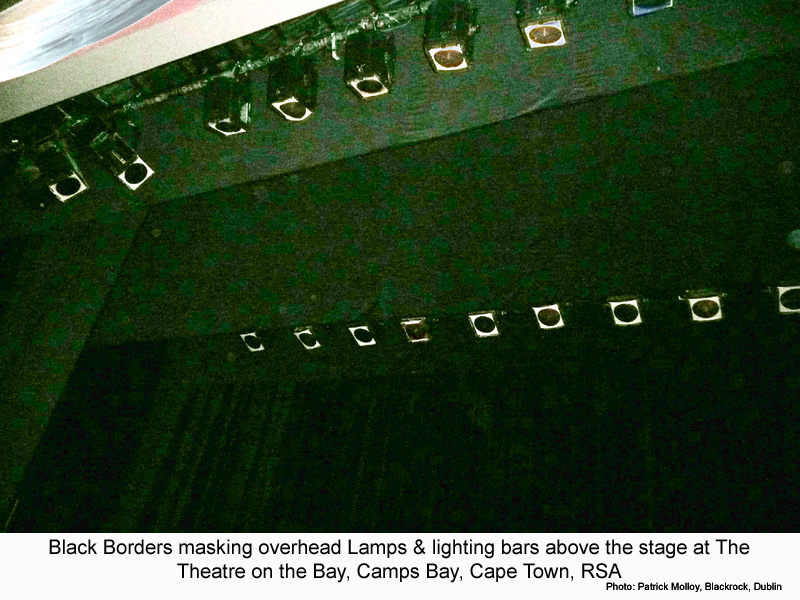Setting Line
Setting line is a chalk drawn line parallel to the front edge of the stage and upstage of the house curtain it is used in conjunction with the centre line to measure the positions for setting the scenery.
Stage Screw
Stage Screw is a large screw with a hand grip for fixing braces to the stage floor.
False Proscenium
False Proscenium, this is an inner frame set back behind the Proscenium Arch to reduce the size of the opening. It may also be a feature of the Designer’s presentation of the set and can also be used to hide lighting.
Border

Border. Flown curtain or scenic piece designed to hide the above stage lighting equipment or other machinery
Dock
Dock. The Dock is an area at the rear or side of stage where scenery is stored when not in use, it is also where materials such as scenery, props, equipment are loaded to and from the delivery trucks, it is also referred to as the Scene Dock.
Back Drop
Back Drop, Back Cloth. A cloth (usually painted) hung/suspended from the flys at the back of the stage
Back Cloth
Back Cloth, Back Drop. A cloth (usually painted) hung/suspended from the flys at the back of the stage
Flys
The Flys, Fly Tower or Fly Loft is a space high above the stage floor which accommodates the flying system whereby scenery, lamps and other items are flown/hung out of sight of the audience.
Cyclorama
The Cyclorama is a smooth uniformly smooth screen, sometimes of stretched cloth, which extends around the back and above the height of the set to give the impression of infinite space. It is also used to project images, shadows and lights onto. It is sometimes referred to as a Sky Cloth.
Scene Dock Doors
The Scene Dock door (s) or Dock Door (s) is a large strong door (or pair of doors) that allows for large items of scenery, technical equipment, props, animals etc to be brought on stage from outside the theatre.
